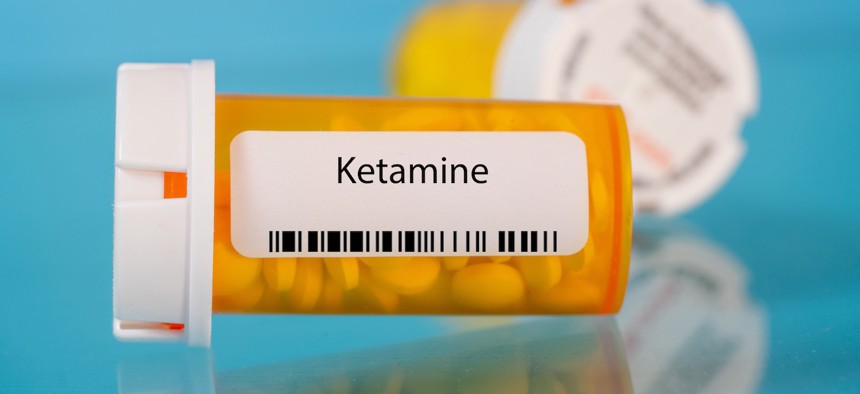
Psychedelic drugs, including ketamine, have grown in popularity for treating persistent depression, PTSD, and other issues. WLADIMIR BULGAR/SCIENCE PHOTO LIBRARY/Getty Images
Could ketamine use cause problems for your security clearance eligibility?
COMMENTARY | When it comes to drug treatments, there’s one key to staying on the right side of a security clearance adjudication.
January isn’t just one of the longest months of the year – it’s also frequently cited as the most depressing, thanks to colder weather, less sun, and the weight of all of those New Year expectations. Once the lights of the holidays have dimmed, and you’re left with just another year in a life that may not be turning out how you’d planned, you may find yourself struggling with more than just a seasonal letdown. The good news is there are more medical therapies and options for combatting anxiety and depression.
But if you’re a security clearance holder or someone working in a trusted position with the government, you may wonder how certain medical treatments or prescriptions could affect your clearance eligibility.
Over the past five years psychedelic drugs, and specifically ketamine, have grown in popularity for treating persistent depression, PTSD, and other issues. In 2019, the Veterans Affairs Department Administration approved prescription use of Spravato, or esketamine, a nasal spray version of ketamine which gained FDA approval for clinical administration.
Recently released toxicology reports noted that Matthew Perry, the popular actor who was very open about his own struggles with addiction, depression, and anxiety, died from the “‘acute affects of ketamine.”’ Perry had been using ketamine therapeutically, but the levels found in his system were anesthetic and far beyond what would be used in a clinical setting. The news has prompted many to question if ketamine should truly be considered as an alternative treatment for depression.
Those working in national security aren’t immune from the effectsaffects of anxiety and depression. And as VA trials for PTSD note, the need for new and innovative treatment options is acute. But when your security clearance eligibility is at stake, it’s worth considering how certain drug treatments – including psychedelic drugs – could affect your clearance eligibility.
When it comes to staying on the right side of a security clearance adjudication, the critical question will be if the drug was prescribed by a doctor and administered in a clinical setting. Self-medicating, whether with drugs or alcohol, is the key way drug and alcohol issues can negatively affect a security clearance.
But with the legal use of drugs from ketamine to opioids on the rise – especially in the veteran and intelligence community, it’s time to twist the cap on the reality of drug dependency and the need for proactive treatment if your prescription drug becomes a dependency problem.
The national security community has worked hard to destigmatize proactive mental health treatment and its positive effect on your security clearance eligibility. Seeking help for issues like anxiety and depression typically don’t even need to be reported. Drug issues should be seen from a similar vantage, with positive posture toward individuals who indicate their medication is becoming a problem, and take steps to address it.
Unfortunately, like mental health, addiction and substance abuse issues can rest under the surface and not be identified until an issue like a DUI or criminal conviction puts the problem in the spotlight. Two common ways for drug or alcohol issues to be identified are through questioning in a polygraph examination, or through substances that are detected in a blood test. Ketamine travels fairly quickly through your system. Opioids or psychedelic medications found in your blood stream may not be an issue – but you’d need to be able to prove that their use is prescribed, and that treatment window was specific. That’s why security clearance holders should be cautious of even holding onto prescription medications. It might be tempting to hang onto that pain killer for your next back flare up, but don’t do so unless you have the clear from your doctor.
Waiting until a problem results in a negative second-order behavior isn’t the best thing for your personal well-being or your career prospects.
Medications and innovative treatments like ketamine can be a great alternative for some. Security clearance holders shouldn’t be concerned about following through with prescribed medical treatments as long as they don’t involve substances that are illegal at the federal level (like marijuana). But keep a close check to ensure prescription use doesn’t become misuse. And if it starts to become an issue, ask for help. Don’t let your security clearance keep you from addressing a prescription drug issue.






